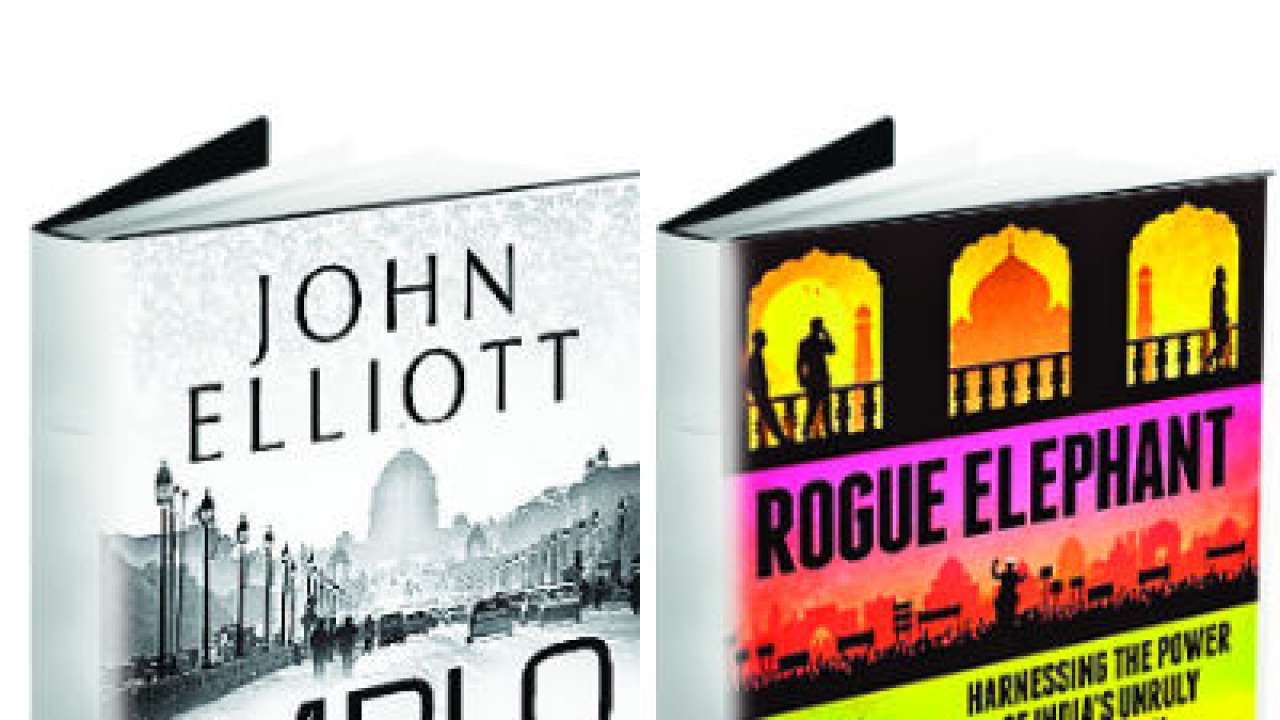
Book: Rogue Elephant- Harnessing the Power of India's Unruly Democracy
Author: Simon Denyer
Publishing House: Bloomsbury Press
Cost: Rs380, 448 pages
Book: Implosion: India's Tryst with Reality
Author: John Elliott
Publishing House: Harper India
Cost: Rs699, 400 pages
These two books by seasoned journalists — John Elliott of Financial Times who spent about 30 years in India in two stints, and Simon Denyer, who headed Reuters India, and then Washington Post — contain lively reportage combined with dollops of comment, which is what good journalism is about. The titles of the books are not to be taken seriously — they are there to grab your attention. Inside, the books are not really an extension of the titles.
English-speaking Indian readers will no doubt enjoy the accounts of Elliott and Denyer, and generally agree with their comments, but, as they are familiar with the situation being described and analysed, will not find the comments insightful. A first-time visitor or investor to India, or diplomats, on the other hand, could find the two journalists' comments of immense value.
Elliott has some interesting things to say. He makes the nicely controversial observation: "The role of Manmohan Singh in the early 1990s is often overstated. As has been seen in this chapter, he was certainly not the 'architect' of the 1991 reforms — an easy but inaccurate tag that is often used by foreign journalists and others." The 1991 reforms, he reveals, appeared first as an 'unsigned article' in Financial Express and that the planning commission deputy chairman Montek Singh Ahluwalia told him that he (Ahluwalia) had written it. Elliott also traces tell-tale signs of economic reforms in Indira Gandhi's return to power in 1980 and then kept up by her son Rajiv Gandhi as prime minister. Elliott then goes on to reveal: "I heard in London in June 2012 that Rahul had told a friend on a recent visit that the way for Congress to stay in power and win elections was through the aid scheme route, not reforms." Foot-note 24 to this sentence says: "Non-attributable conversation with JE, London, June 2012".
Denyer displays greater flamboyance. He traverses a more diverse and rough landscape — political and social, tracing the history of the 23-year-old girl who was gang-raped in a moving bus in December 2011, and 17-year-old Bhura, a Muslim from a poor family in Uttar Pradesh who migrated to the national capital where he eked out a meagre living.
Most of the time, Elliott and Denyer deal with the developments of the last few years which made headlines in newspapers and featured on prime time news, and give their assessments. It becomes necessary to remember their journalistic credentials to avoid judging their narration of events and their judgments born of liberal sensibilities. The clichés about dysfunctional Indian democracy, the teeming poverty and shallow gleam of opulence, the venality of Indian politicians and the promise that India holds as a land of liberty and plenty are writ too large, making the narratives predictable and tiresome. It seems they are unable to look at India in a different and fresh way.
It is brave of Elliott and Denyer to have ventured to write about India. It is to be hoped that Indian journalists who are serving as foreign correspondents, will be inspired to write books about those countries, and learn from the mistakes of Elliott, Denyer and other foreign correspondents make in their writings about India.